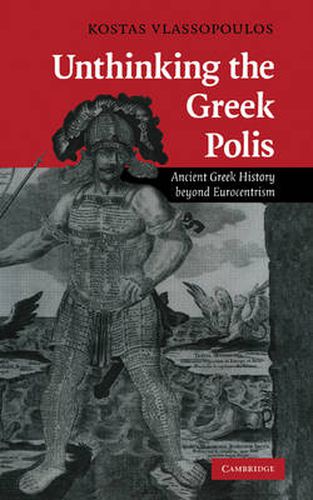Readings Newsletter
Become a Readings Member to make your shopping experience even easier.
Sign in or sign up for free!
You’re not far away from qualifying for FREE standard shipping within Australia
You’ve qualified for FREE standard shipping within Australia
The cart is loading…






This 2007 study explores how modern scholars came to write Greek history from a Eurocentric perspective and challenges orthodox readings of Greek history as part of the history of the West. Since the Greeks lacked a national state or a unified society, economy or culture, the polis has helped to create a homogenising national narrative. This book re-examines old polarities such as those between the Greek poleis and Eastern monarchies, or between the ancient consumer and the modern producer city, in order to show the fallacies of standard approaches. It argues for the relevance of Aristotle’s concept of the polis, which is interpreted in an intriguing manner. Finally, it proposes an alternative way of looking at Greek history as part of a Mediterranean world-system. This interdisciplinary study engages with debates on globalisation, nationalism, Orientalism and history writing, while also debating developments in classical studies.
$9.00 standard shipping within Australia
FREE standard shipping within Australia for orders over $100.00
Express & International shipping calculated at checkout
This 2007 study explores how modern scholars came to write Greek history from a Eurocentric perspective and challenges orthodox readings of Greek history as part of the history of the West. Since the Greeks lacked a national state or a unified society, economy or culture, the polis has helped to create a homogenising national narrative. This book re-examines old polarities such as those between the Greek poleis and Eastern monarchies, or between the ancient consumer and the modern producer city, in order to show the fallacies of standard approaches. It argues for the relevance of Aristotle’s concept of the polis, which is interpreted in an intriguing manner. Finally, it proposes an alternative way of looking at Greek history as part of a Mediterranean world-system. This interdisciplinary study engages with debates on globalisation, nationalism, Orientalism and history writing, while also debating developments in classical studies.